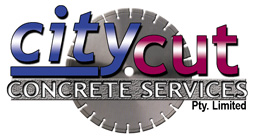Compliant Curb Cuts and Pedestrian Crossings
We are all familiar with how important curb cuts are as street elements for more friendly design, that allow easy access to and from the sidewalk. They provide an accessible route for every street user; pedestrians, cyclists, mothers with strollers although sometimes designers overlook them. A curb cut is a ramp that connects the sidewalks to the road, so the separation becomes clearer and the entire street is more accessible for people with disabilities who are transiting from a road to a sidewalk.
The most common type of curb ramp are those with 90-degree angle. Professional kerb cuttings are easily noticeable from a distance due to the use of different types of bricks.
These are very well designed, visible to everyone and allow people with bikes to travel up and down whenever they need. There are also not so visible curb cuts and these are easier to cross. Their biggest drawback is that people can’t find them so easily, especially those with wheelchairs.
The nightmare of cyclist and people with disabilities are bed cuts with a too steep angle, even worse than not having a curb at all. Drivers don’t have a problem to pass these cuts a sloped section is unpleasant for people with wheelchairs they feel the bump too much. Sometimes the transitions are so ugly as a result of the bad street plan; in this case only asphalt is added to ease the pass between the road and the latter. In addition to this, when optimizing the road design we also need to consider their impact on the driveway, the safety of pedestrians and people with disabilities. Traditionally, design parameters have been based on the standard measures and parameters to meet the needs of disabled people. Incorporating these principles into all aspects of street design can eliminate the barriers and create a truly functional and usable street.
Assistive technologies today are capable to create curb ramps with flared sides so people are able to walk across them. The new requirements for the street sides depend on the width of the sidewalk at the top of the ramp. If the width of the sidewalk at the top of the ramp is less than 48 inches, then the slope of the flared sides must be no more than 8.33%. If the width of the sidewalk at the top of the ramp is 48 inches or more, than the flared sides may slope up to a maximum of 10%.
Attributes of good curb cut in central business districts are:
• Accessible by ALL users (pedestrian zone and curb zone)
• Consist with the proper width
• Safe and Comfortable to use
• Free of all obstacles
• Landscaping to create additional space between pedestrians and traffic and also provide shade.
The dimensions of the curb zone also discourages motor vehicles from entering/exiting the sidewalk except at designated locations and is an important safety and guide signal for pedestrians with vision impairments. Designers and construction companies need to understand the impact of the street elements when constructing facilities to and makes the street accessible for everyone. To increase the usability of the street you can contact concrete cutters Sydney – they have machines to cut sidewalks so wheelchairs and scooters can easily use them.

